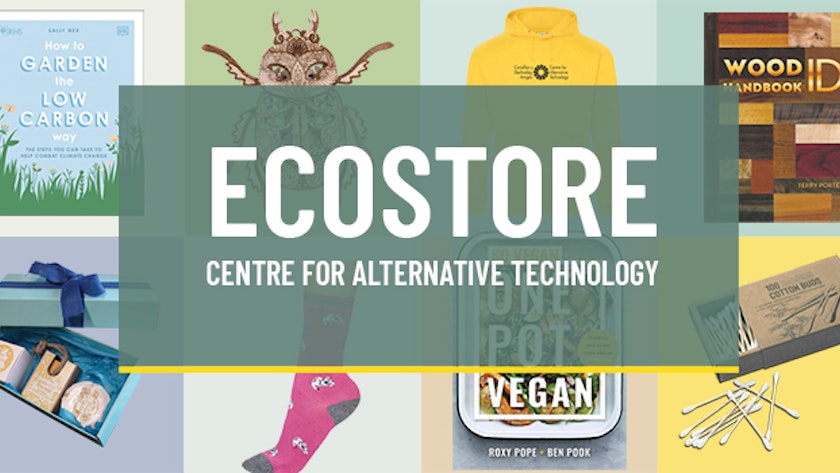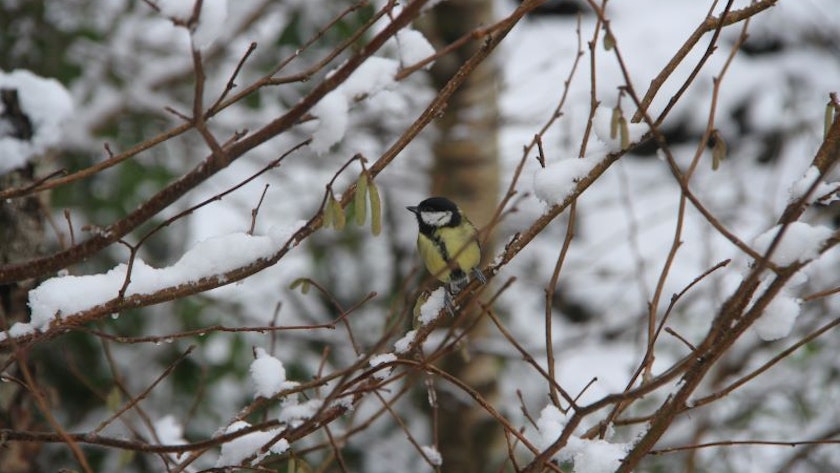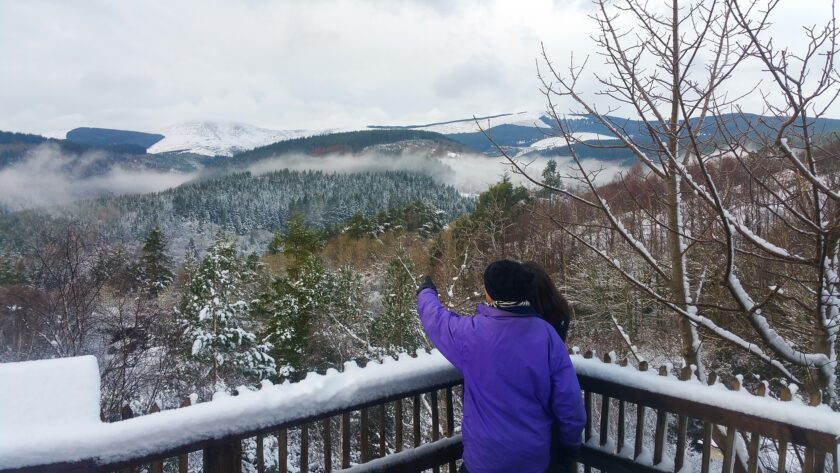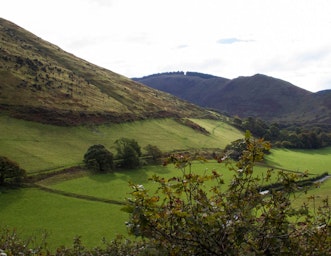
At this time of year, many of us are thinking about how we can enjoy the festive season without costing the Earth. Claire Thorpe shares some top tips for a sustainable Christmas – focusing on some of the areas where lots of people making simple changes could add up to big reductions in emissions and waste.
Lots of us will be looking for ways to reduce our impact on the environment over the festive season, and we have shared some tips on how to do this below. Of course, we will also need wider changes across all areas of our lives if we are to reach net zero emissions and keep global heating below 1.5°C, but the smaller changes mentioned here can really add up when lots of people take part. We hope you find these ideas helpful – and don’t forget that sharing blogs like this one, or talking to your friends and family about the changes you have made, could inspire them to do the same!
Deck the halls
Choosing the right tree can have a big impact on your Christmas emissions. With Brits expected to buy around eight million Christmas trees this year, what are the greenest options?
If you already have a plastic tree then keep using it. If you want to get your hands on a fake tree, which should last many years, try second-hand shops or your local reuse networks, such as Freecycle or Gumtree. This can be a great place to source decorations too!
If you love the look and smell of a real tree, then you have a few options. If you have the space, you could bring a potted tree inside for a brief spell at Christmas – or decorate your existing houseplants. If you are bringing a tree inside make sure to keep it indoors for only up to a fortnight and keep it away from radiators and topped up with water.
There are a growing number of options to rent a tree, which can be a great option if you don’t have the space for a potted tree. Many places give you the option of renting the same tree each year.
If you are buying a cut tree, at a minimum make sure it is UK-grown in a sustainably-managed woodland and FSC certified.
Real or fake, the biggest issue for both is disposal. Artificial trees can be almost impossible to recycle (especially if they have lights built in). Keep hold of it for as long as possible, and ensure it is stored carefully to extend its lifespan.
Most councils now offer kerbside collection for real trees, where they will be turned into woodchips for use in parks and gardens. This helps prevent the potent greenhouse gas methane from being emitted as your discarded tree rots in landfill. In some areas, local conservation groups use old Christmas trees to stabilise sand dune habitats too!
Aside from your tree, why not go for a winter walk and collect natural decorations for a table display?

Good gifting
One thing that we all have to do at Christmas (and throughout the year) is buy less stuff.
A huge amount of resources go into making the clothes, electronics, plastics and all the other things we buy, as well as packaging them, shipping them and the energy they use over their lifetime. In 2019 there were an estimated 23 million unwanted Christmas gifts sent to landfill, so when gifting, make sure to get things the recipient will use and source them as locally and sustainably as possible. Think about buying second-hand or vintage goods, and look for ethical certification and labels like Fair Trade, FSC and cruelty-free. There are some great guides online, such as Ethical Consumer or Good on You, that can help you make more sustainable purchases.
Other ways to make your gifts friendlier on the planet would be to set up a family Secret Santa, so everyone gets one gift rather than everyone buying for everyone else, or set a price limit for your presents. If you’re creative and have the time, then making or crafting something will cut the environmental impact of manufacturing and transporting items, and it can be more personal too. You could even make something that helps wildlife, building a nest box for birds, hedgehog house, or minibeast hotel for the garden.
You could use your purchase to support an environmental organisation like CAT – for example, shopping in our Ecostore or buying gift membership gives a lovely present while also supporting our research and education work.
Giving vouchers for experiences or courses can be another great alternative to ‘stuff’, as can vouchers pledging to do something fun with or for your recipient.

All wrapped up
Wrapping paper can be a source of unnecessary waste at Christmas, with many types ending up in landfill or contaminating recycling with glitter and other plastics.
You could decorate waste or scrap paper, use old newspapers or magazines to wrap your presents and use string or tape made from paper to reduce the waste from your wrapping.
If you do buy wrapping paper, make sure it is FSC certified, recycled paper without any glitter or plastics. If you scrunch the paper and it stays balled up, it’s generally free of plastic or foil lining and can be recycled – but remember to keep what you can to reuse next year.
You could also get creative and upcycle old cards into present tags and make your own recyclable cards.

Festive eating
Many of us are aiming to eat a more plant-based diet, cutting down on meat and dairy for both health and environmental reasons.
Luckily, there are lots of meat-free festive options, either using meat alternatives or remaking classic dishes with plant-based substitutes. If you’re looking for some fresh ideas, check out some of the vegan and veggie cookbooks in our online shop.
Try to source seasonal locally grown produce where you can. Happily, the traditional trimmings of a Christmas dinner such as parsnips, sprouts and carrots all fit the bill.
Tonnes of food is wasted every year at Christmas, and wasted food is a significant contributor to greenhouse gas emissions. Make sure to plan ahead and only buy as much as you and your dinner guests will eat. You can also get creative with leftovers to ensure none of that delicious food ends up in the bin. If you’re leaving leftovers out for winter wildlife, take a look at some of our tips on what’s good and what’s not for your garden visitors.

Beat the blues
Christmas can be a stressful time, and this one will be tougher than most for many of us. Spending time outdoors can have a whole range of positive effects on our physical and mental wellbeing, including reducing stress levels, so making time to get outside can be really beneficial at this time of year. Head to your local park, nature reserve or other green space and take a moment to connect with nature.
Volunteering can also be a good way to do something positive for your local community or a cause close to your heart, with the added benefit of making you feel happier and healthier. Follow local groups on social media or their newsletters to find out about ways to get involved over the festive season.
Our CAT at Home pages have plenty of ideas for outdoor activities with family and friends to help beat the blues and reduce stress levels on these shorter, cold days.

Resolutions for the new year
Once Christmas is over, you might want to see how you can extend the sustainable habits mentioned here into your new year resolutions. You could pledge not to fly for the year, set yourself a small budget for the number of new things you buy over the next 12 months, or make changes to your diet. You could switch to a green electricity provider, improve the energy efficiency of your home, or switch to walking and cycling where possible instead of taking the car.
There are lots of things we can do as individuals – and lots more we can do when we come together to build a movement for change. You could make 2022 the year you get active in your community climate group, join an environmental organisation, or build on your skills and knowledge to play a bigger part in creating change.
By joining together we can push for stronger, faster action on cutting emissions whilst working towards change in our own homes, workplaces and communities, helping inspire others to do the same.
At CAT, we will be continuing to inspire, inform and enable the next generation of changemakers through our postgraduate courses, short courses and visitor centre, and helping communities, councils and governments to implement their climate action plans. We have big plans to grow our work in 2022, inspiring many more changemakers to help build a better future for all. All of this is made possible through your support – thank you, and wishing you a merry Christmas and happy New Year.

- Energy
Related Topics
Related Pages
EMAIL SIGN UP
Keep up to date with all the latest activities, events and online resources by signing up to our emails and following us on social media. And if you'd like to get involved and support our work, we'd love to welcome you as a CAT member.



